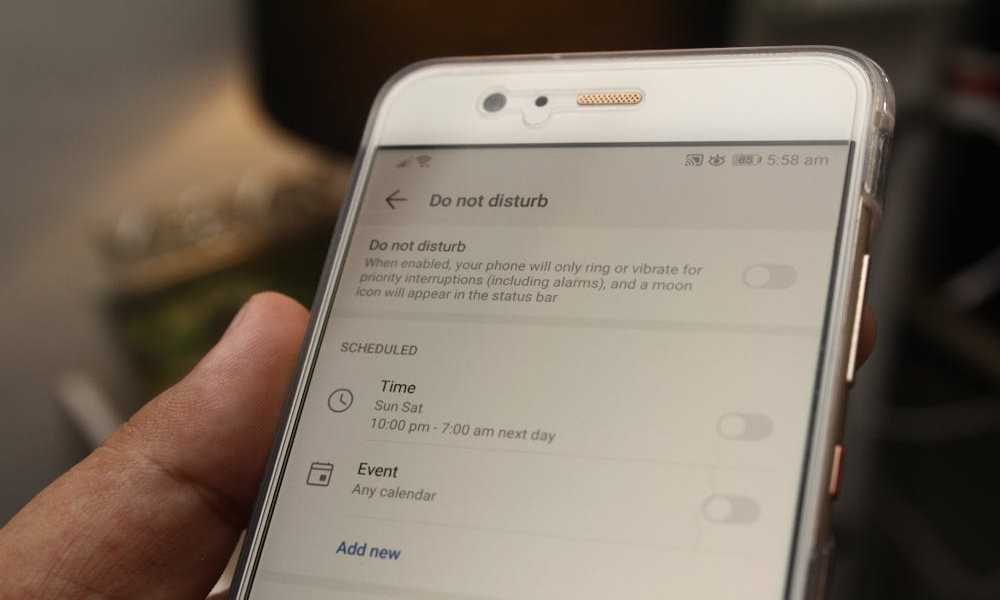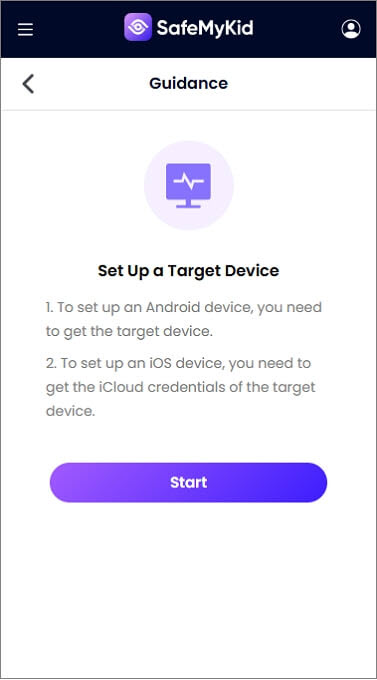5 Subtle Signs You're Being Cheated On (And How to Find Out The Truth)

Cheating isn’t always obvious. Your partner isn’t going to come home one day and say, "Hey, by the way, I’m cheating on you!" Instead, infidelity often leaves behind subtle signs—changes in behavior, secretive habits, and emotional distance.
But how can you tell the difference between normal relationship struggles and actual cheating? That’s what this post is all about. I’ll walk you through 5 subtle signs you're being cheated on—the kind that most people overlook.
If you suspect something’s off in your relationship, keep reading. The truth might be hiding in plain sight.

Why Subtle Signs That You're Being Cheated On Matter?
Before I dive into the signs, let’s talk about why subtlety matters. Cheating doesn’t always start with a full-blown affair. It often begins with small, seemingly innocent actions—like a new interest in their appearance or a sudden need for privacy.
These changes can be easy to dismiss, especially if you’re someone who tends to give your partner the benefit of the doubt. But ignoring these signs can lead to bigger problems down the road.
The goal here isn’t to make you paranoid or to encourage you to jump to conclusions. Instead, I want to empower you with the knowledge to spot potential red flags so you can address them head-on. After all, the sooner you recognize the signs, the sooner you can have an honest conversation with your partner.
The 5 Subtle Signs You're Being Cheated On

Let’s get into the nitty-gritty. Here are 5 subtle signs you're being cheated on that you should keep an eye out for:
1. They’re Suddenly Overprotective of Their Phone
We all value our privacy, but if your partner has suddenly become overly protective of their phone, it could be a red flag. I’m not talking about the occasional “I need some space” moment—I’m talking about behaviors like:
- Take their phone with them everywhere, even to the bathroom.
- Keeping their screen face-down or angled away from you.
- Changing their passcode without telling you.
- Getting defensive or angry if you ask who they’re texting.
Now, I’m not saying you should snoop through their phone (that’s a breach of trust in itself). But if their phone habits have changed dramatically, it’s worth paying attention. It could be a sign that they’re hiding something.
2. Their Schedule Becomes Unpredictable
Life gets busy, and schedules can change. But if your partner’s routine has become increasingly unpredictable—and they’re not giving you a clear explanation—it could be a cause for concern. Here’s what to look for:
- Frequent “late nights at work” with no real proof.
- Sudden interest in new hobbies or activities that don’t include you.
- Unexplained gaps in their day where they’re unreachable.
If you notice these changes, it’s natural to feel uneasy. I’d suggest having an open conversation about their schedule. If their explanations feel vague or inconsistent, it might be time to dig deeper.
3. They’re More Critical or Distant Than Usual
Emotional distance is one of the most common—and most painful—signs of infidelity. If your partner is cheating, they might start picking fights or criticizing you more often. This could be their way of justifying their actions or creating emotional space between you. Look out for:
- Nitpicking over small things that never used to bother them.
- A lack of interest in spending quality time together.
- Avoiding deep conversations or shutting down when you try to connect.
It’s important to remember that this behavior isn’t always about cheating—it could be a sign of stress or other issues. But if it’s paired with other red flags, it’s worth considering the possibility.
4. Their Appearance Changes Dramatically

When someone is trying to impress a new love interest, they often put extra effort into their appearance. If your partner has suddenly started dressing differently, hitting the gym more often, or paying more attention to their grooming habits, it could be a sign that they’re trying to attract someone else. Here’s what to watch for:
- Buying new clothes or cologne without a clear reason.
- Spending more time on their hair or makeup.
- Suddenly losing weight or getting in shape.
Of course, there’s nothing wrong with wanting to look good. But if these changes seem out of character and coincide with other suspicious behaviors, it’s worth paying attention.
5. They’re Overly Defensive or Secretive
When someone is hiding something, they often become defensive or secretive to avoid getting caught. If your partner is cheating, they might react strongly to innocent questions or accusations. For example:
- They might accuse you of being paranoid or insecure.
- They might avoid answering direct questions about their whereabouts.
- They might try to turn the tables and make you feel guilty for doubting them.
This kind of behavior can be incredibly frustrating, especially if you’re just trying to have an honest conversation. But if your partner is consistently defensive or evasive, it could be a sign that they’re hiding something.
What to Do If You Notice These Subtle Signs of Being Cheated On?

If you’ve noticed one or more of these 5 subtle signs you're being cheated on, it’s important to approach the situation carefully. Here’s what I recommend:
- Don’t Jump to Conclusions: While these signs can be concerning, they don’t necessarily mean your partner is cheating. There could be other explanations for their behavior.
- Communicate Openly: Have an honest conversation with your partner about your concerns. Use “I” statements to avoid sounding accusatory (e.g., “I’ve noticed you’ve been more distant lately, and it’s making me feel uneasy”).
- Trust Your Gut: If something feels off, don’t ignore it. Your intuition is a powerful tool, and it’s worth listening to.
- Seek Support: If you’re struggling to make sense of the situation, consider talking to a trusted friend or therapist. They can offer valuable perspective and support.
How to Spot Subtle Signs You're Being Cheated On

If you’re noticing subtle signs you're being cheated on, gathering information discreetly might feel like the only option. SafeMyKid is a fantastic tool for monitoring online activity while remaining completely invisible. It helps you track your partner’s digital behavior without them ever knowing.
Here is how to use SafeMyKid to discreetly monitor suspicious activity and find clarity about what’s going on.
Key Features of SafeMyKid to Monitor Subtle Signs You're Being Cheated On
SafeMyKid isn’t just for parents; it’s for anyone who needs clarity about their loved ones’ online and offline activities.
- Real-Time GPS Tracking: Check if your partner’s location aligns with what they’re telling you.
- Social Media Monitoring: Access chats on platforms like WhatsApp and Facebook Messenger.
- Browser History Tracker: See if they’ve visited dating sites or searched for someone specific.
- Privacy Mode: All monitoring is done in stealth mode, so your partner will have no idea you’re tracking their activity.
How to Monitor Subtle Signs You're Being Cheated On
Setting up SafeMyKid is incredibly simple. Here’s how you can get started:
Step 1. Sign up and create an account
Start by creating an account with your email address.

Step 2. Set up on the target device
- For iPhones, you don’t need to install anything. Just log in using the device’s iCloud credentials.
- For Android phones, install the SafeMyKid app discreetly on the device.

Step 3. Catch the subtle signs of cheating
Once it’s set up, SafeMyKid will display information like text messages, call logs, browsing history, and more—all in one convenient place. You can even block specific websites if necessary.

Why Choose SafeMyKid?
SafeMyKid is perfect for anyone who wants a dedicated, easy-to-use tool to monitor digital activity discreetly. Whether you’re a parent keeping an eye on your child’s online safety or someone concerned about a partner’s behavior, SafeMyKid provides comprehensive monitoring without the user ever knowing.
5 Common Lies Cheaters Tell and How to Spot Them
When someone is being unfaithful, they often use lies to cover their tracks. While every situation is different, cheaters tend to repeat the same excuses. Below is a breakdown of common lies, what they actually mean, and how to spot inconsistencies.
| Common Lie | What It Really Means | How to Catch the Truth |
|---|---|---|
| "We're just friends." | They may be emotionally or physically involved. | Observe body language & hidden messages. |
| "I was working late." | They might be spending time with someone else. | Verify with work schedules or coworkers. |
| "You’re just being paranoid." | Gaslighting to make you doubt yourself. | Trust your instincts & look for patterns. |
| "I deleted it by accident." | Likely erasing incriminating texts or calls. | Check phone records or use monitoring apps. |
| "You’re overthinking things." | Avoiding direct answers to shut down suspicion. | Stay calm and ask specific questions. |
FAQs About 5 Subtle Signs You're Being Cheated On
To wrap up this comprehensive guide, here are some of the most frequently asked questions about recognizing 5 subtle signs you're being cheated on. These questions aim to clear up any doubts and help you make informed decisions when addressing concerns in your relationship.
1. How accurate are these subtle signs in determining if someone is cheating?
While the 5 subtle signs you're being cheated on are common red flags, they aren’t definitive proof of infidelity. People’s behaviors can change for various reasons, such as stress, work pressure, or personal issues.
However, if you notice multiple signs combined with a gut feeling that something’s off, it’s worth having an honest conversation with your partner.
2. Should I confront my partner if I notice these signs?
Confrontation can be tricky. I recommend approaching the situation calmly and without accusations. Use “I” statements to express your feelings, like, “I’ve noticed you’ve been more distant lately, and it’s making me feel uneasy.” This approach encourages open communication rather than defensiveness.
3. Can technology help me confirm my suspicions?
Yes, tools like SafeMyKid can help you monitor digital activity discreetly. While it’s primarily designed for parental control, it can also be used to track browsing history, social media activity, and location. However, always use such tools ethically and within legal boundaries.
4. What if my partner denies cheating despite the signs?
Denial is common, especially if they’re trying to avoid conflict or consequences. If your partner denies cheating but the signs persist, consider seeking professional help, such as couples therapy, to address underlying issues in the relationship.
Final Thoughts
Spotting 5 subtle signs you’re being cheated on isn’t about being paranoid; it’s about being informed. You deserve transparency and honesty in your relationship, not suspicion and doubt. Tools like SafeMyKid empower you to uncover the truth without confrontation, providing the clarity you need to move forward—whatever path that may be.
Whether it’s through using SafeMyKid or simply trusting your gut, you have the tools to protect your peace of mind and make empowered decisions. Cheating might be subtle, but with the right awareness, you can uncover the truth.


